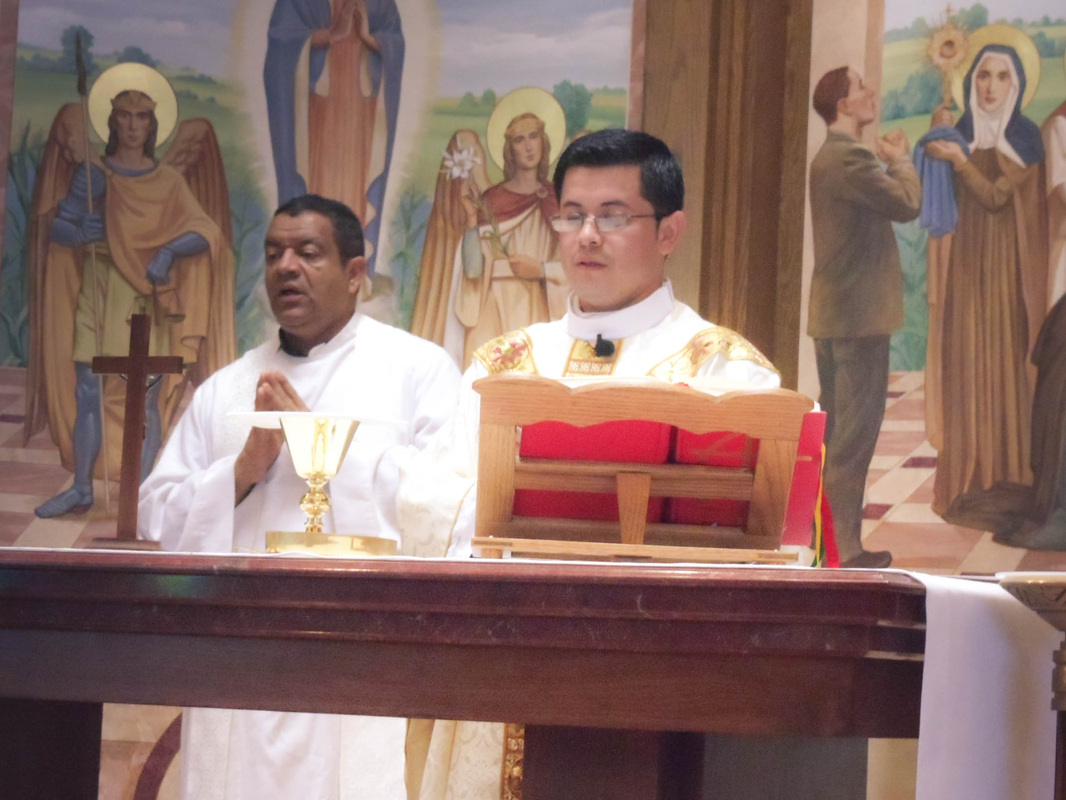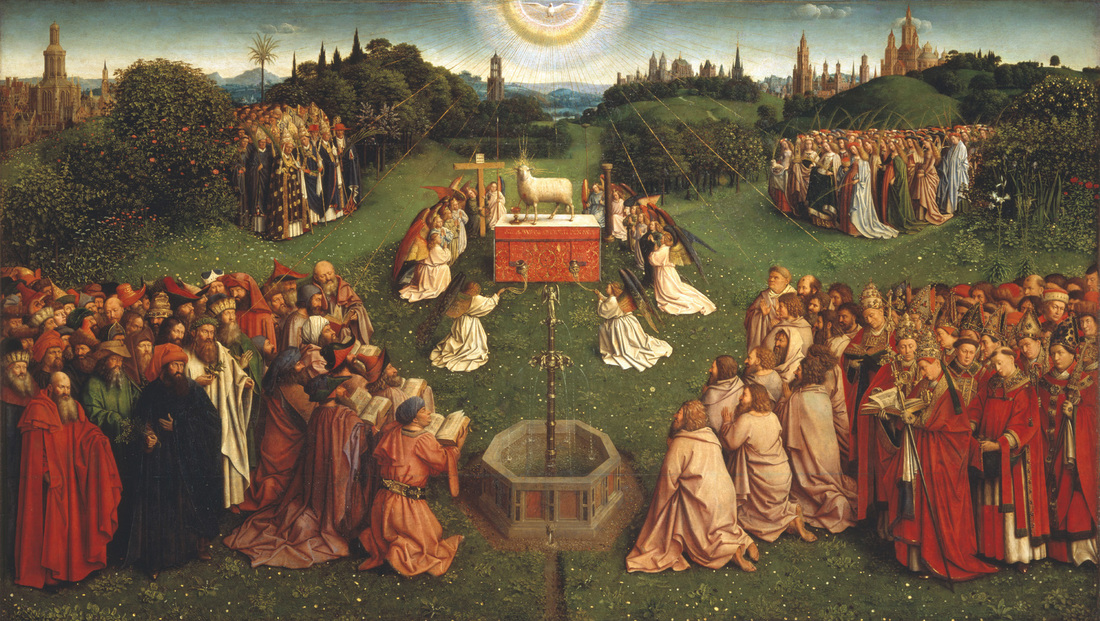 Dear Brothers and Sisters: This weekend we celebrate the Solemnity of All Saints. This joyful occasion is an opportunity for us to pray for and meditate on our journey toward heaven. The saints, brothers and sisters, are men and women who lived outstanding lives while in this world. They made Jesus’ teachings their goal in life. They were humble enough to recognize their human frailty and to seek God’s mercy and forgiveness. Above all, they lived lives of service to God and to community. The saints are now in the Triumphant Church with God, the Father, the Son and the Holy Spirit, and with all the angels in heaven. Their souls are now in the presence of God where there is no pain, suffering, temptation or sin. We, dear friends, are still in the Pilgrim Church, the Church which is still on the journey. We have faith and hope that one day we will join the saints in heaven. Our hope for heaven relies on Jesus’ promise that He will prepare a place for us and come back and take us to Himself (John 14:3). The saints’ lives are examples which give us courage to continue our fight against evil and sin. They care about us and have become powerful intercessor for us. Some of them are men and woman which we have probably met while they were still here with us. Names such as Saint John Paul II and Mother Teresa of Calcutta are still fresh in our minds. Let us celebrate with joy the life of the saints with the hope that one day we will be in heaven with them all. God bless St. Patrick Parish. Fr. Lopez
0 Comments
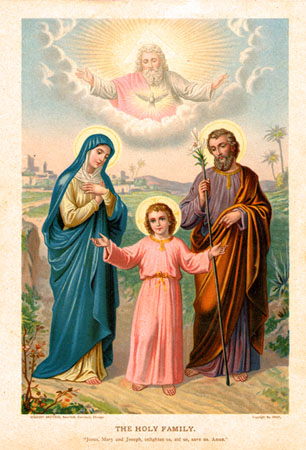 Dear brothers and sisters, Several good things are happening during this month which we are about to conclude. We prayed for and are expecting to see the fruits of the Ordinary Synod on the family. We also renewed our commitment with the promotion and protection of human life at every stage and all circumstances. Allow me to share with you Bishop Malloy’s reflection on the protection and promotion of human life. He wrote: “Life is a gift, a gift given to every person in existence and every person who has ever existed by our Creator. Life has been given to each of us, not by chance or happenstance, but because the Author of Creation has a purpose for each of us. At every moment, through every season of life, each of us is being held in existence by God’s love. Because of this we can be assured that as long as there is life, God has an intentional purpose for that life. However brief, however long, every life has value, every life has purpose, and every life is worth living.” “As we witness the natural world around us change with the seasons, we can also recognize that there are different seasons throughout life. The joys of spring time and the glory days of summer are not separate realities from the fading days of autumn and the darkness of winter, bur part of cyclical nature of creation, each season having value and purpose. So too, each and every life is worth living in the seasons of joy and happiness, and also in times of suffering and even pain.” “It is in these times of hardship, pain or suffering that we might be most tempted to take control of life, to take control of existence itself, in ways that violate the dignity with which God has created us. We witnessed this earlier this month, as tragically, California became the fifth state in our nation to make assisted suicide legal.” “Experiencing pain or watching another suffer can be very difficult. But we know that because we are held in existence by God’s love that even in these moments, life has purpose and life is worth living. Even when one’s health deteriorates quickly, when a person is not seen as a ‘contributing’ member of society by the world’s standards, when an unborn child receives a diagnosis indicating he may not live for much longer – even in these seasons, life is a gift that has a purpose and is worth living” By Bishop David Malloy. I encourage you to subscribe to The Observer, the official newspaper for our diocese, and read Bishop Malloy’s reflections and much more every weekend. God bless St. Patrick. Fr. Lopez
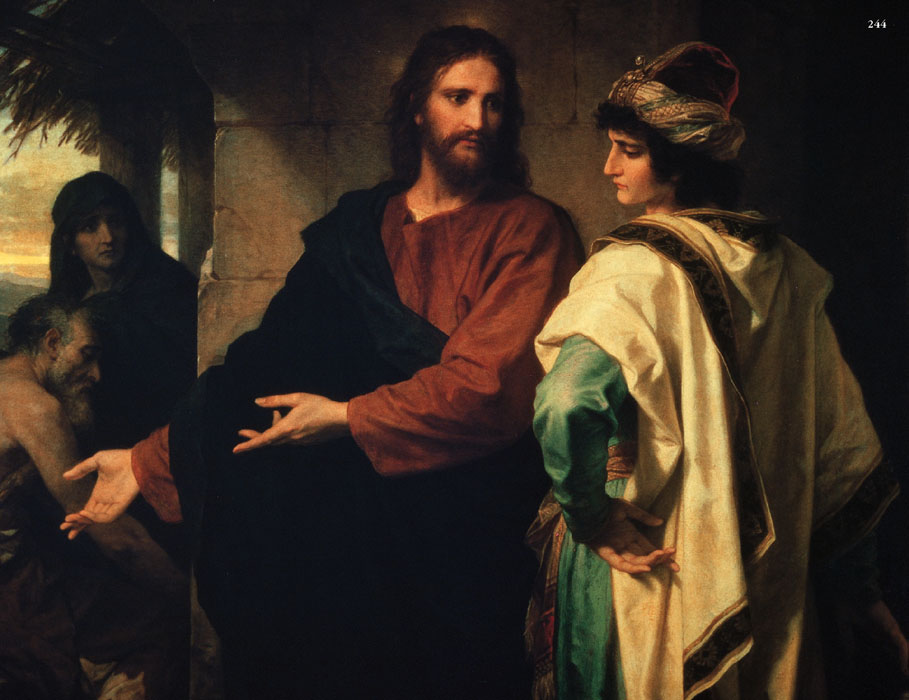 Dear parishioners, greetings in Christ, Today’s Gospel of Mark presents us the story of a young man who runs up to Jesus, knelt down before him, called him good teacher, and asks, what must I do to inherit eternal life? Certainly this man heard about Jesus before and provably this was his first opportunity to speak to him; he just didn’t walk bur run toward Jesus. The young man, if not entirely at least partially, recognized Jesus’ divine origin, called him good teacher and asked about eternal life. After asking him why do you call me good, Jesus addressed the young’s man concern; ‘you know the commandments. You shall not kill, you shall not commit adultery, you shall not steal,’ etc. Following the dialogue, we learned that the young man has observed the commandments since early age. Mark is very descriptive of Jesus’ second look at the man in the narrative: ‘looking at him loved him and said.’ It is quite difficult to imagine that someone loves a person just at the first gaze. It might mean that Jesus looked at him with compassion and mercy. It is evident with the narrative that it was a very profound look so much so that Jesus saw not only his face but the young man’s entire life. Yes, he had observed the commandments up to now but there was much more in his life and he was not willing to stay it. According to Jesus’ findings, he was lacking one thing. In a very clear way, Jesus makes two requests to the young man. First, ‘Go, sell what you have, and give to the poor and you will have treasure in heaven.’ Second, ‘come and follow me.’ We know the end of the story, the young man went off sad because he had many possessions. Once again, Jesus teaches us that becoming his disciples requires a giving up of something. Sometimes it could be being more generous with one’s material blessings or leaving behind a place in which we feel comfortable in. Becoming Jesus’ disciple could also mean leaving behind family or people we love. Whatever that is, which we need to give up, Jesus always assures us that we will never be left empty handed. “Amen, I say to you, there is no one who has given up house or brothers or sisters or mother or father or children or lands for my sake and for the sake of the gospel who will not receive a hundred times more now in this present age: houses and brothers and sisters and mothers and children and lands, with persecutions, and eternal life in the age to come” (Mark 10: 29-30). With great joy we have become Jesus’ disciples. We know what we have given up. However, is there still something in me which I still hold on to that Jesus is asking me to give up? 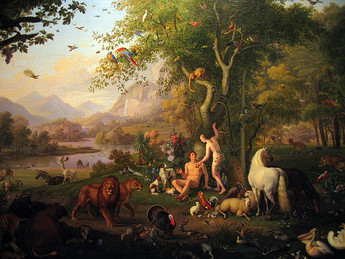 Dear St. Pat’s family, The first reading for this Sunday’s liturgy is from the second chapter of Genesis. This is the second account of creation; the first one is found in chapter one. This book makes use of a language with which we are not familiar, and rightly so, because it was written hundreds of years before Christ. Certainly it made sense for the first audience. Despite the unique language, however, we need to make an extra effort to grasp the teaching. We know that the narrative’s goal is to give an account of God’s creation. I would like to pay particular attention to the creation of humanity. In chapter two, after God created the first human being, he said, “It is not good for the man to be alone. I will make a suitable partner for him.” And in seeking a suitable partner, God brought into existence all of the other living creatures: wild animals, birds of the air, etc. After creating all of the animals, God noticed that none of them would be a suitable partner for the man. He knew that He needed to create another human being to be the companion for the first man. The reading continues by saying that God cast the man into a deep sleep. While he was sleeping, God took out of him a rib and built it into a woman. After the first human being woke up, he immediately recognized the woman to be bone of his bones and flesh of his flesh. As ancient as this creation narrative from Genesis is, we can learn the following: from the beginning, God made us human beings; there is something essential which makes us different from animals; we are made to live in communion with each other and not alone. Certainly all of the other living creatures are part of God’s creation, just like we are. It is very clear from Genesis, however, that we human beings were not the product of evolution. We were not animals and then human beings. From the beginning, we have been human beings, distinctive from all other creatures. What makes us distinctive from animals is our soul and our capacity to discern one’s actions through the will and intellect. Animals act out of instinct; we act out of reason. God bless you all. Fr. Lopez |
Rev. Johnson LopezFather Lopez is Pastor of Saint Patrick Catholic Church in Rochelle, IL. Categories
All
Archives
April 2017
|

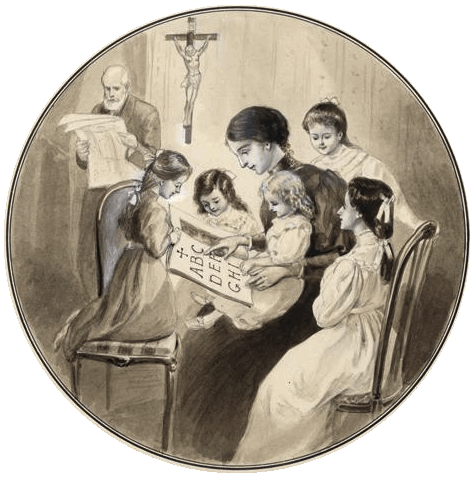
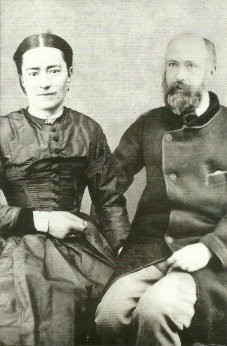
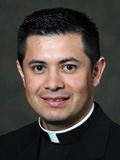
 RSS Feed
RSS Feed
